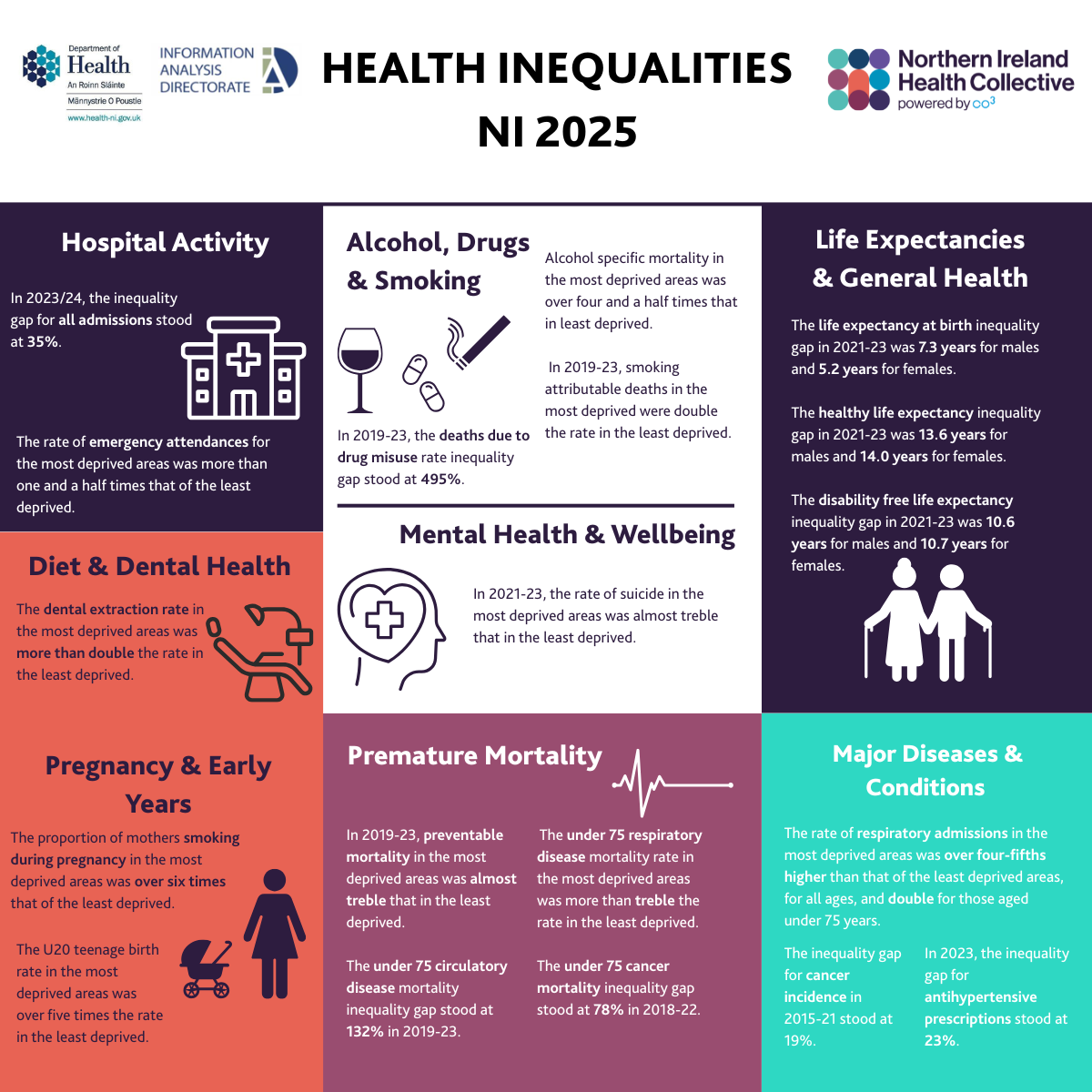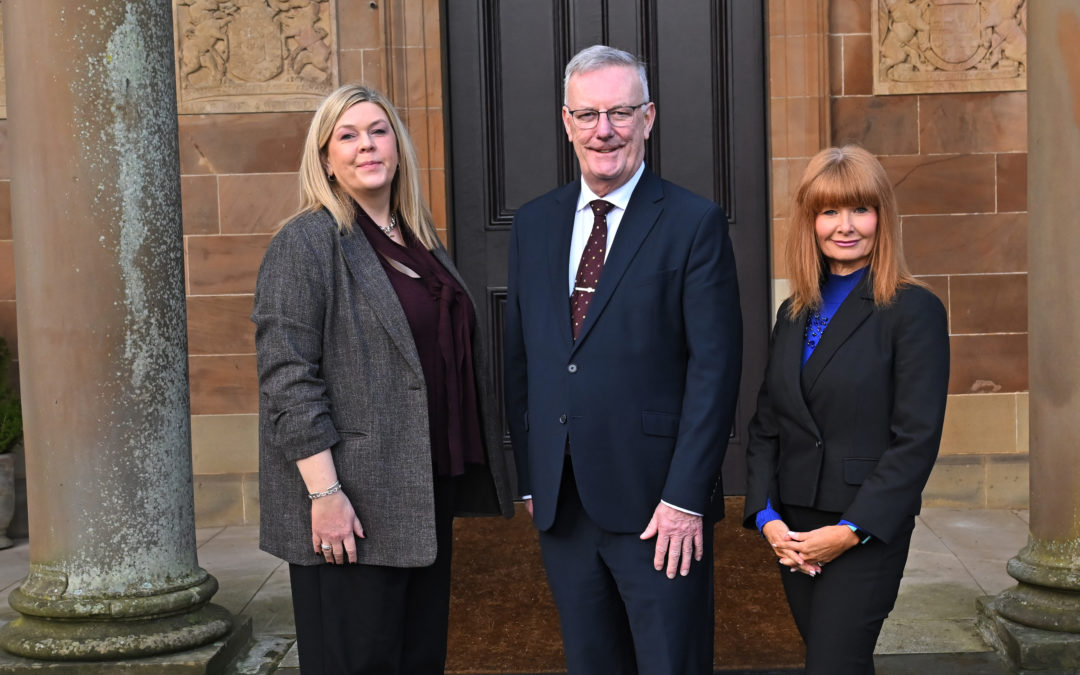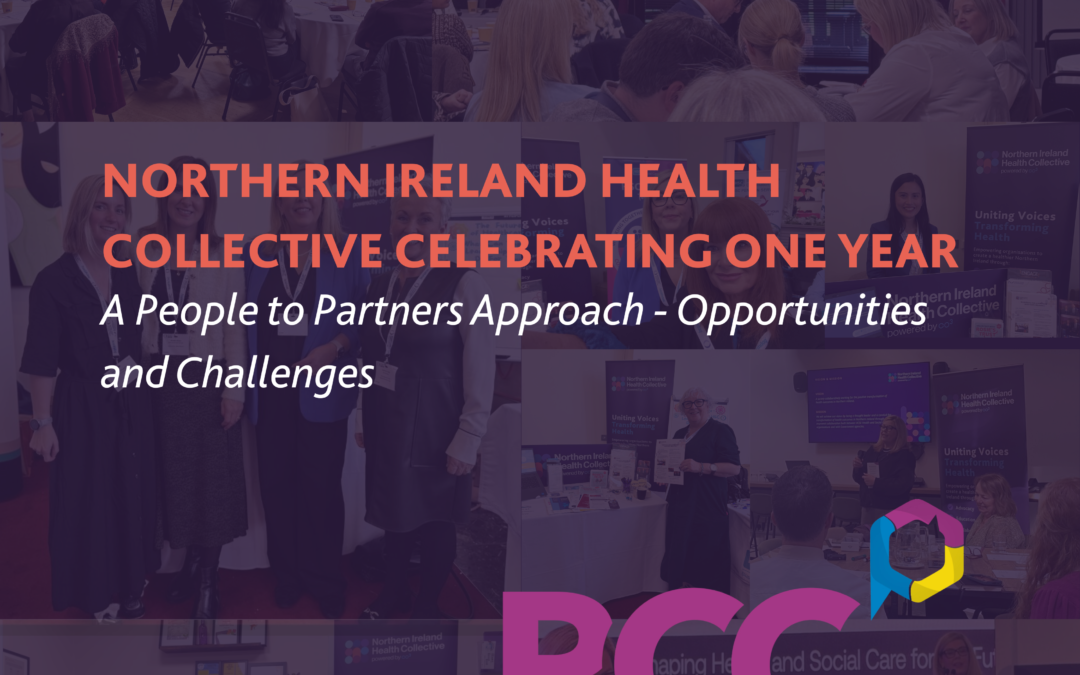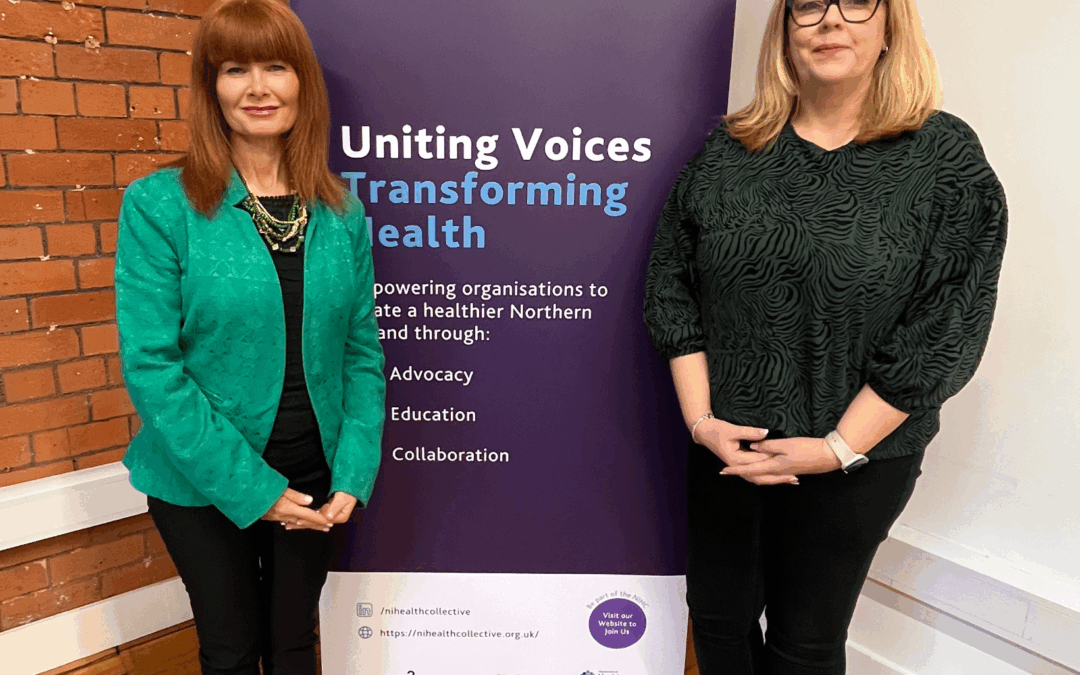The newly published Health Inequalities Annual Report 2025 from the Department of Health offers a sobering yet essential look at the scale and persistence of health inequalities across Northern Ireland. These figures are not just statistics—they represent the lived experiences of individuals, families, and communities where disadvantage continues to shape health outcomes.
For members of the NI Health Collective, particularly those in the Voluntary, Community and Social Enterprise (VCSE) sector, this report is a critical resource. It reflects the challenges our organisations confront daily in supporting wellbeing, reducing harm, and building resilience in the areas most affected by inequality.
Key Findings that Matter
- Life expectancy remains deeply unequal: males in the most deprived areas live 7.3 years less, and females 5.2 years less, than those in the least deprived.
- Suicide rates in the most deprived areas are almost treble that in the least deprived.
- Drug related mortality in deprived areas are almost six times that of the least deprived.
- Alcohol-Specific Mortality: Rates are 4.5 times higher in deprived communities.
- Youth Insight: The inclusion of the Young Persons Behaviour & Attitudes Survey provides deeper understanding of youth health behaviours and social determinants.
- Community Health Focus: The report highlights the growing role of community-based health initiatives in reducing inequalities—aligning directly with VCSE efforts in outreach, prevention, and support services.
Why it Matters
This year’s report doesn’t just highlight problems. It validates the role of community-based solutions. For VCSE members, it’s a powerful tool to:
- Advocate for place-based funding
- Strengthen cross-sector partnerships
- Align with evidence-based policy priorities
The Role of VCSE Organisations
Community and voluntary sector-led organisations are not just service providers—they are connectors, advocates, and catalysts for change. Their insight and experience must inform the NIHSC Reset Plan’s priorities, investments, and accountability mechanisms.
If the Reset Plan is to truly transform health and social care, it must be grounded in the evidence of inequality—and shaped by the voices of those closest to it.
Explore the full report here.
We encourage our members to use this data to:
- Build stronger local partnerships
- Shape strategic decisions
- Advocate for equity in access to health and wellbeing
At NI Health Collective, we’re committed to standing alongside our members—whether you’re leading grassroots initiatives or influencing system-level change. This is a shared journey toward a fairer, healthier Northern Ireland, and we’re proud to walk it with you.
Let’s keep the collaboration strong, and ensure that community voice remains central to the Reset Plan and beyond.




